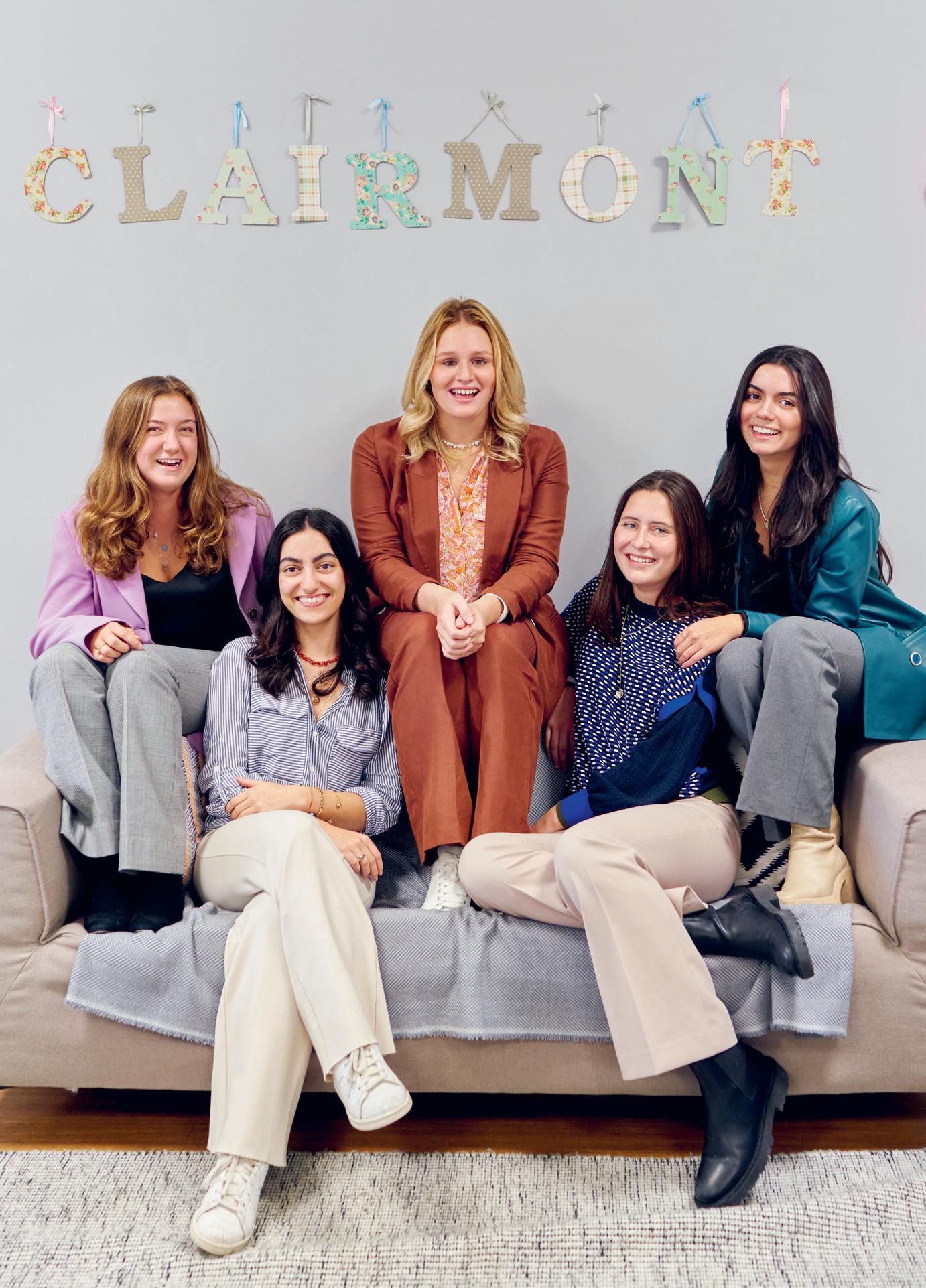
3 minute read
Hometown
HOMETOWN
KATHMANDU
Advertisement
Aiglonians past and present give the inside track on the hustle and bustle of the Nepalese capital.
Illustration James Olstein
YOUR GUIDES
Ashmita Adhikari (Clairmont, Class of 2024)
Yukti Mahato (Clairmont, 2021)
Kritee Mahato (Clairmont, 2019)
E
veryone has their own vision of what Kathmandu is like but, says Ashmita Adhikari (Clairmont, Class of 2024), who spent her childhood there, there’s only one place to go if you want to get a real sense of the place: one of the city’s many temples or gombahs (monasteries).
“There are many different communities here and each one has its own representations,” she explains. And fellow Nepalese sisters Kritee (Clairmont, 2019) and Yukti (Clairmont, 2021) Mahato are quick to agree. They recommend Swayambunath, also known as the Monkey Temple after the bands of monkeys that roam its grounds, and Pashupatinath, an extraordinarily beautiful UNESCO world heritage site, which sits on the banks of the Bagmati river. Boudhha, another world heritage site, is known as the Great Stupa for its massive dome-shaped structure – one of the biggest in Nepal.
Of course, it’s easy to regard Kathmandu as merely a gateway to Nepal’s extraordinary mountains and valleys. But it’s well worth taking a few days to appreciate the ancient capital city. Unlike the famous peaks which surround it, Kathmandu isn’t a particularly high-altitude city – in fact, lying in a valley 1,400m above sea level, it’s only the 18th highest capital city in the world. So, visitors shouldn’t experience any adverse altitude effects, enabling them to plunge straight into Kathmandu’s unique sights, sounds and tastes. “It’s a small place but you can do a lot –that’s what I love about it,” says Yukti.
The narrow, noisy streets of Thamel district are the place to pick up souvenirs, says Kritee – they’re lined with small shops selling traditional pashminas, cashmere scarves and artwork. For food (and people-watching) head to Durbar Square. “One of the most famous dishes is Nepalese momos, which are dumplings,” says Kritee. “You can get those everywhere and they’re filled with chicken, lamb, pork or vegetables. Or if you want to experience traditional Nepali cuisine, try thali. It’s a big plate with a small bowl of rice in the middle, surrounded by bowls of anything from chicken to vegetables to pickles – and once you’ve finished a bowl, they’ll refill it.” For dessert, try jalebi – deep-fried circles of batter topped with sugar syrup. Curd is commonly eaten after food, too. Look out for the famous dahi made in the city of Bhaktapur – a delicious, thick curd, flavoured with Nepalese honey.
If you’re craving peace and tranquillity, the extraordinary National Botanical Garden in Godawari is just an hour’s drive away at the foothill of Mt. Phulchowki (2,765m), the Kathmandu Valley’s highest peak. You’ll find around 1,000 different plant species here. “It’s a beautiful garden with a museum you can explore, too,” says Ashmita. “One of my favourite memories of Kathmandu is a family picnic there before lockdown.
“Everyone will be very welcoming,” continues Ashmita. “They may not say ‘Namaste’ to you, as you are from a different country, but they will certainly say ‘hi’! If you want to truly experience a small place that is incredibly diverse, come to Nepal. We speak more than 100 languages and have so many different cultures, costumes and traditions.”
Vaud’s local bank
www.bcv.ch/sponsoring

Start your Bachelor Degree in September or February

Contact us → bachelor@ehl.ch
REDEFINING HOSPITALITY LEADERSHIP

A Unique Kind of Business School
EHL Hospitality Business School, founded in 1893 as École hôtelière de Lausanne has been pursuing excellence for over a century. It trains executives for the hospitality, service and luxury industries. From day one our programs put you in the shoes of a future professional as you learn management techniques and develop personal skills through hands-on workshops, internships and micro-entrepreneurship projects on campus. At EHL we redefine hospitality leadership as a smart mix of autonomous thinking, respect, empathy and caring for others. We believe that soft skills paired with great know-how is what defines the most inspiring people.
* QS World University Ranking, Hospitality & Leisure Management










